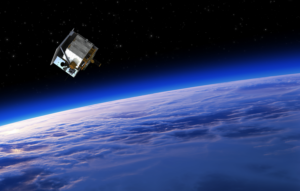The Washington-based startup also announced that Lori Garver, former NASA deputy administrator and Earthrise Alliance CEO, would join its board of directors.
Cultivation Capital led Hydrosat’s seed round. Freeflow Ventures, the Yield Lab, Expon Capital, Techstars, Industrious Ventures and Synovia Capital also participated.
Hydrosat’s inaugural mission, called VanZyl-1, is scheduled to be mounted on a Loft Orbital satellite and launched in early 2022 on a SpaceX Falcon 9 rocket. The VanZyl-1 imager is designed to detect water stress, monitor wildfire risk and observe agriculture.
Hydrosat is designed to capture surface temperature data that will help organizations track the risks of drought and fires. In addition, surface temperature data obtained by the Hydrosat constellation would shed light on the impact of drought on crop production and wildfire risk, Fossel said by email.
Hydrosat plans to launch 16 additional satellites to scan the globe on a daily basis, generating “science-quality infrared data and an analytics-ready land surface temperature product,” according to the company’s June 17 news release.
With the latest investment, which brings the company’s total raised to $10 million, Hydrosat plans to develop commercial products focused on agriculture and analytics.
The European Space Agency, U.S. Air Force and U.S. Defense Department have awarded contracts to Hydrosat. Hydrosat has an office in Luxembourg.
“There has historically been strong civil and military government interest in long-wave infrared satellite data,” Hydrosat CEO Pieter Fossel said by email. “Government is an important customer for Hydrosat. However, we see huge growth in potential demand for geospatial applications across commercial industries that are exposed to environmental risks, particularly, agriculture, insurance and financial services.”
In addition to Garver, Hydrosat’s board is expanding to include Cultivation Capital General Partner Andy Dearing. Dearing was the former CEO of Boundless Spatial, a geospatial software company purchased by Planet. Former RapidEye CEO Ryan Johnson also is joining the board. Planet also acquired Berlin-based RapidEye through its parent company BlackBridge.
“Water stress is one of the most widespread and pressing challenges with climate change, and we believe that Hydrosat is uniquely positioned to address this,” said Andy Dearing,
Rather than relying on customer tasking orders, Hydrosat is building a high-capacity satellite system to collect data continuously.
“It’s on-demand data with no reservations,” Fossel said. “We are building a commercial capability that will make the entire globe available daily from our library, which is powerful for machine learning users.”



